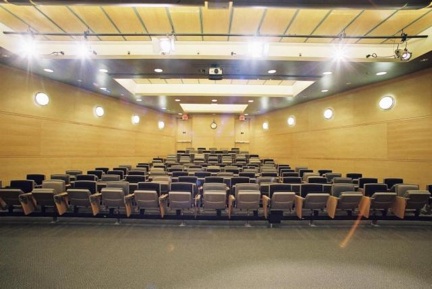
Faculty associated with AMBL are involved in variety of courses. Furthermore, AMBL facilities are involved in a number of courses as well. Below, in list format, are the aforementioned courses with corresponding links to the UBC Student Services page.
PROGRAMS:
UBC’s First-Year Seminar in Science offers a small-class experience and extensive faculty member interaction. It explores science as a comprehensive way of knowing–its curriculum will strengthen your critical thinking and communication skills, and a science and society speaker series will broaden your horizons.
http://science.ubc.ca/students/new/courses/113
SCIE 113 First-Year Seminar in Science
Small-group experience where students study science in society, scientific process, and how to communicate scientific concepts. Enrollment limited to students with first-year standing in the B. Sc. program in Science.
For more information contact, Dr. Joanne Fox, Director, First Year Seminars (SCIE113), Faculty of Science
TERM ONE:
BIOL437/BOTA544/FRST503/PLNT540 (14|5|3|2 students)
“Molecular Biology Techniques”
David Ng. Syllabus closely mirrors table of contents for the professional molecular biology workshops.
Laboratory course on molecular techniques. DNA purification and characterization; restriction enzyme digests; cloning; RNA work; polymerase chain reaction (including real time); 1D and 2D PAGE analysis.
MICB405 (64 students)
“Bioinformatics”
Joanne Fox, Michael Murphy.
Computational methods to analyze genome and protein sequences to derive structural and functional information. Related topics in functional genomics.
TERM TWO:
ASIC200 (90 students)
“Global Issues in the Arts and Sciences”
David Ng, Joanne Fox, Allen Sens. Full syllabus details can be found here.
This course will encourage an audience of students drawn from both the Faculty of Science and the Faculty of Arts, to think about global issues and the responsibilities and obligations of global citizenship in a critical manner. It will encourage them to appreciate the need for new and innovative interdisciplinary approaches (bridging the Arts and Sciences) to solve the complex problems of the 21st century.” Enrollment in the course will be restricted to 45 students with second-year standing from each of the Faculties of Arts and Science. This course will count towards a Arts requirement for Science students, and the lower level Science requirement for Arts students.
PATH547 (24 students)
“Molecular Biology Techniques”
David Ng. Syllabus closely mirrors table of contents for the professional molecular biology workshops.
Laboratory course on molecular techniques. DNA purification and characterization; restriction enzyme digests; cloning; RNA work; polymerase chain reaction (including real time); 1D and 2D PAGE analysis.
FNH439 (12 students) Rm105 of MSB.
“Laboratory in Integrated Functional Genomics”
Steven Lund, Sunita Chowrira
current techniques and instrumentation in transcriptome analyses, proteome profiling, metabolite analysis, and bioinformatics. The concepts and skills learned have broad applications to omics-based systems biology research in eukaryotes. BIOL/FNH 436 is a prerequisite for FNH 439 – only 12 seats are available and registration is blocked, so prospective students must apply directly to me in order to register. Prerequisites may be waived for qualified graduate students, please contact Dr. Lund for more information.
